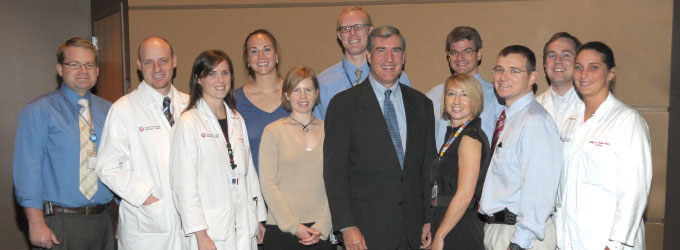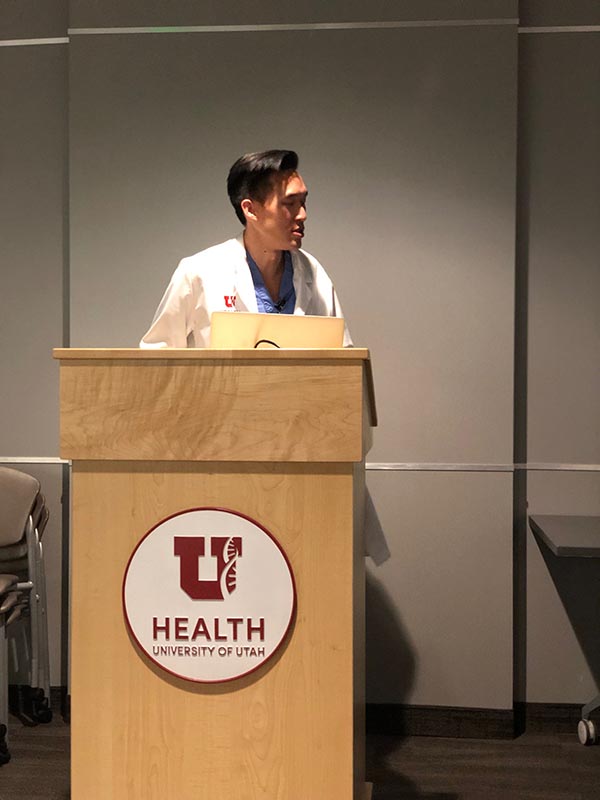
Urology Division Conferences

Visiting professor Peter T. Scardino, MD, Memorial Sloan-Kettering Cancer (middle, front) with (front row, left to right) Meghan Edwards, Heather Willis, Scardino, Miranda Hardee, Robert Wrona, (back row, left to right) Michael Taylor, Stephen Summer, Elizabeth Mobley, John Gannon, Cory Johnston and Brock O’Neil
Review of interesting or unusual cases, highlighting diagnostic and treatment options/algorithms, pathophysiology and review of the literature surrounding the case. Plan for 10 minute discussion. These are best selected from planned surgical cases or recent consultations. Each facility resident should come prepared to discuss at least one case. These will be assigned by the chief and other responsibilities delegated as he/she sees fit. Try to stay within the topic of the month, but other interesting cases can be highlighted.
Review: AUA Guidelines/Best Practice statements The assigned resident uses new self-made questions to highlight the features of the AUA guidelines being reviewed. Questions are meant to clarify the details and act as reinforcement of the guidelines.
 Preoperative Indications
Preoperative Indications
It is imperative that urologists in training understand the indications, complications and alternatives to all urologic procedures. This conference enables the resident to discuss pre-operative evaluations and surgical alternatives to urologic diseases. Residents are expected to propose treatments and be prepared to defend them against alternative therapies.
Imaging Review
Interesting and educational cases that have relevant radiographic imaging will be presented to the division for comment and learning. The resident who is assigned a particular case will present the facts of the case and is responsible for presenting an evidence-based discussion of the relevant issues. This conference prepares the residents for the uroimaging portion of the American Board of Urology exam.
Interesting cases will also have routine follow up for residents to share with the group actual operative findings and deviations from the proposed plan.
M&M
Held every other month and separated by adult and pediatric populations. The chief resident at each facility will prepare a summary of the past two months cases and prepare an evidence-based discussion on the cause and prevention of at least one particular M&M. Unique or common complications should be highlighted. Emphasis is placed on objective publications related to the case and systems-based problems and how they are corrected using the systems in place at the specific sites of service. Appropriate documentation forms will be completed prior to the presentation of the case, these will be turned it following M&M. Small groups provide residents opportunity to interact with peers and faculty in an informal, yet goal driven setting. Residents and faculty will use these groups to facilitate discussion and answer questions on various topics. These are not meant to be lectures or simply faculty directed questioning to belittle residents, but are meant to provide residents an opportunity to ask questions and learn in an informal setting. Faculty can organize these groups at their discretions. Residents should come prepared for the discussion having reviewed the topic at hand.